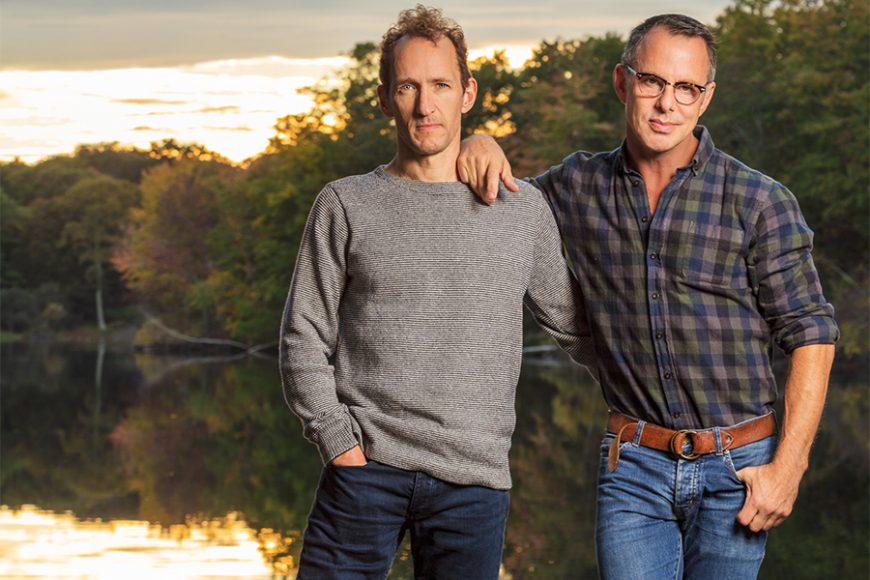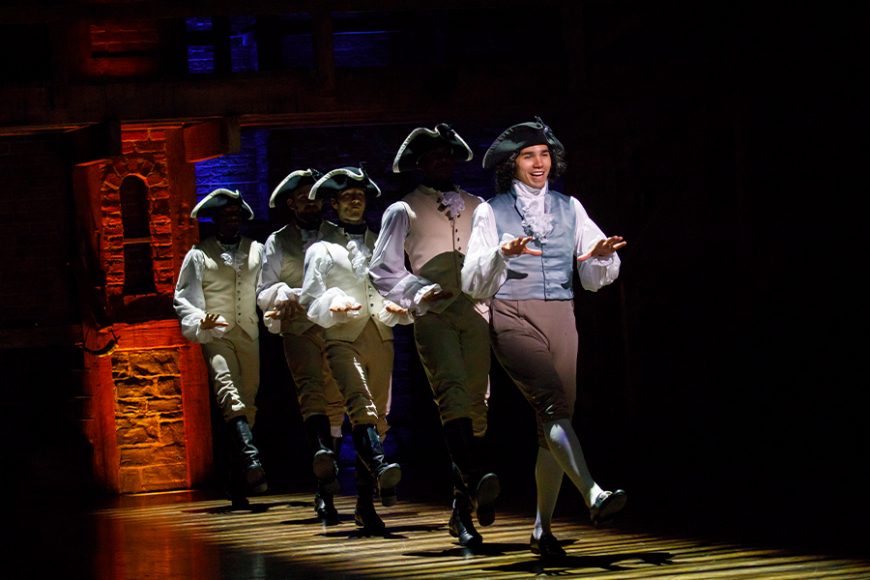Alexander Hamilton — the Founding Father who shaped the American economy and made New York the financial capital of the country — also co-founded with first Chief Justice of the U.S. Supreme Court John Jay the New-York Manumission Society, the main anti-slavery organization in New York. Hamilton’s widow, the former Elizabeth “Eliza” Schuyler, helped to found the Orphan Asylum Society, which she served for 42 years.
So it’s no surprise that “Hamilton” the blockbuster musical — and its producer — should be paying it forward in the spirit of the couple who inspired it — helping underserved students and families at risk.
“Community outreach … has been the primary mission of ours since day one,” says Waccabuc’s Jeffrey Seller, producer of the 11-time Tony Award winner — created by Lin-Manuel Miranda, himself a former English teacher.
Through the Hamilton Education Program, some 20,000 Title I New York City public high school students have had an opportunity to see the show — for a mere $10 a ticket — thanks to donors like The Rockefeller Foundation. With two touring companies of “Hamilton” and productions in Chicago, San Francisco, Los Angeles and London, the initiative will reach 250,000 students in Title I-eligible schools nationwide through 2020.
For these students, the experience is far from a passive one. The Gilder Lehrman Institute of American History in Manhattan, which emphasizes document-based learning, has created an interactive curriculum that allows them to work with primary sources while putting their own spin on history through monologues, dialogues, songs and raps.
This reinforces the musical’s revolutionary approach — casting performers from diverse backgrounds, thus fulfilling the nation that Hamilton and the other Founding Fathers anticipated. Just as the students may watch the musical and see a black George Washington or an Asian-American Aaron Burr, Seller says their participation in the program enables them to say, “That’s me. I’m part of American history.”
Another “Hamilton” initiative involves the descendant of the orphanage Eliza Hamilton helped found, which the musical discusses in its poignant conclusion. In 1806, she, Isabella Graham and Johanna Bethune established what is now Graham Windham. No longer an orphanage but a family services agency, Graham Windham offers in-home family therapy, facilitates foster care and operates an after-school community center as well as The Graham School, a residential education and treatment center and Special Act School for grades K-12 that serves more than 200 at-risk New York City kids each year at its Hastings-on-Hudson campus.
“We’ve always had our hats off to Graham Windham,” says Seller, who was pleased to be one of its honorees.
The “Hamilton” cast — in particular Phillipa Soo, the original Eliza — has supported the organization through arts education workshops and a pen-pal partnership, raising its profile in the nonprofit world.
If the underprivileged are able to see themselves in “Hamilton,” it may be because Seller sees himself in them. All adulthood is a reaction to childhood: You’re either replicating an experience you loved or trying to make up for something you lacked. A 2016 New York Times magazine article on Seller described his childhood as difficult, Dickensian even — the adopted middle child of a suburban Detroit family that went from riches to rags, thanks in large part to a motorcycle-loving dad who wound up in an accident that resulted in brain damage. (Perhaps Oscar Wilde was wrong when he wrote in the poem “The Ballad of Redding Gaol,” “For each man kills the thing he loves.” It seems that each man is killed by the thing he loves.) In any event, the family’s reduced circumstances underscored Seller’s desire to create a life in the theater in New York.
He is a man who chooses his words carefully, asking us before the interview even begins if we are taping it to make sure the quotes are accurate. “I would say I had a challenging childhood,” he amends. “I am where I am today because of public education and student aid and because of the opportunities that so many teachers and professionals offered me as a kid.”
Seller’s charitable work extends beyond “Hamilton.” He and his partner, photographer Josh Lehrer, who are the parents of two teenage children, have contributed to the Archangel Ancient Tree Archive through their Seller Lehrer Family Foundation. In his reforestation efforts, Seller has been inspired in part by their Waccabuc home overlooking Whatmore’s Lake and adjacent North Salem property.
“I’ve always had a dream of waking up on a Saturday morning and walking into my own park and being the steward of the land” — a dream that has now come true.
But there is another way that Whatmore’s Lake inspires him.
“I do a triathlon once a year — swimming, cycling and running,” he says. “I have a wonderful time jumping in the lake and swimming its perimeter. And then I polish it off by doing Bikram yoga.”
As if that weren’t enough, the self-professed “ants in his pants” kind of guy — who produced “Rent” by the late White Plains native Jonathan Larson, Miranda’s “In the Heights” and the current “Derren Brown: Secret,” featuring the eponymous illusionist — is “cooking” four other musicals that he will produce over the next six years. Words like “cooking,” “making” — signifiers of producing something tangible — lace his vocabulary.
“I said to my kids, ‘The measure of our lives is not what we consume but what we make.’”
Seller, no doubt, will be “cooking” for a long time.
For more, visit gilderlehrman.org and graham-windham.org.



